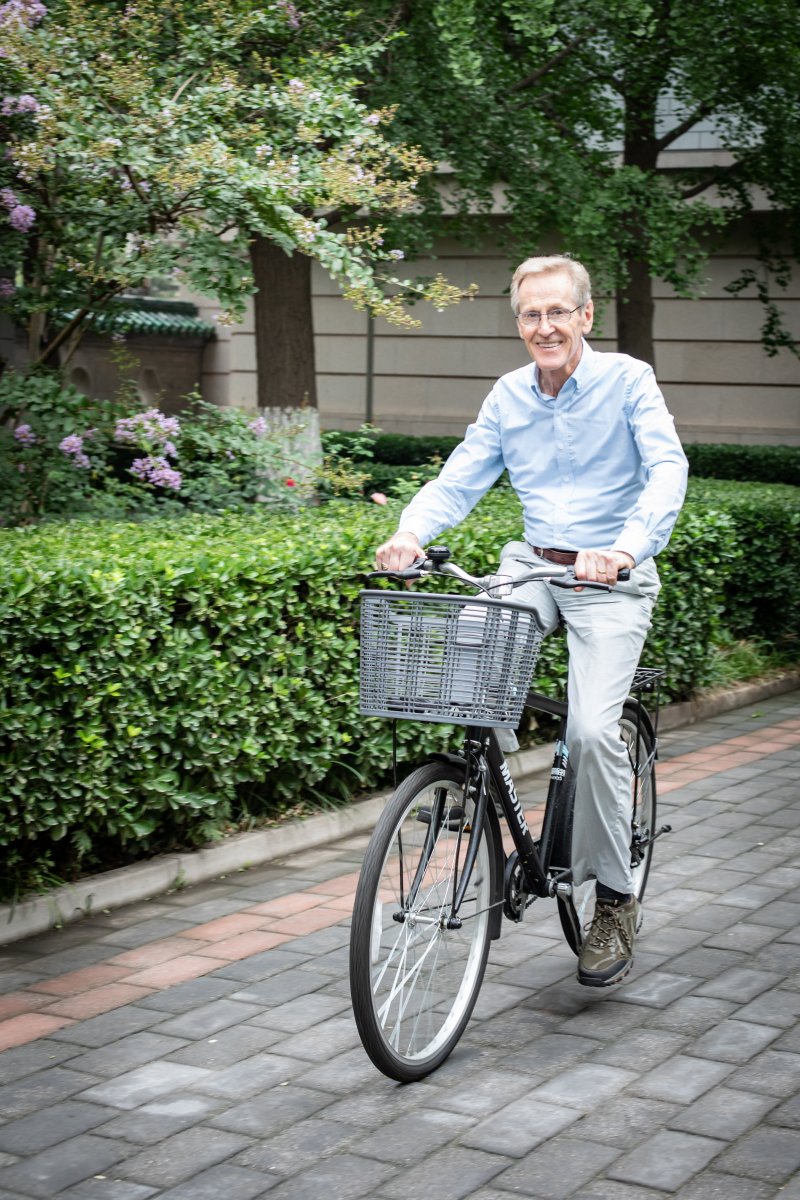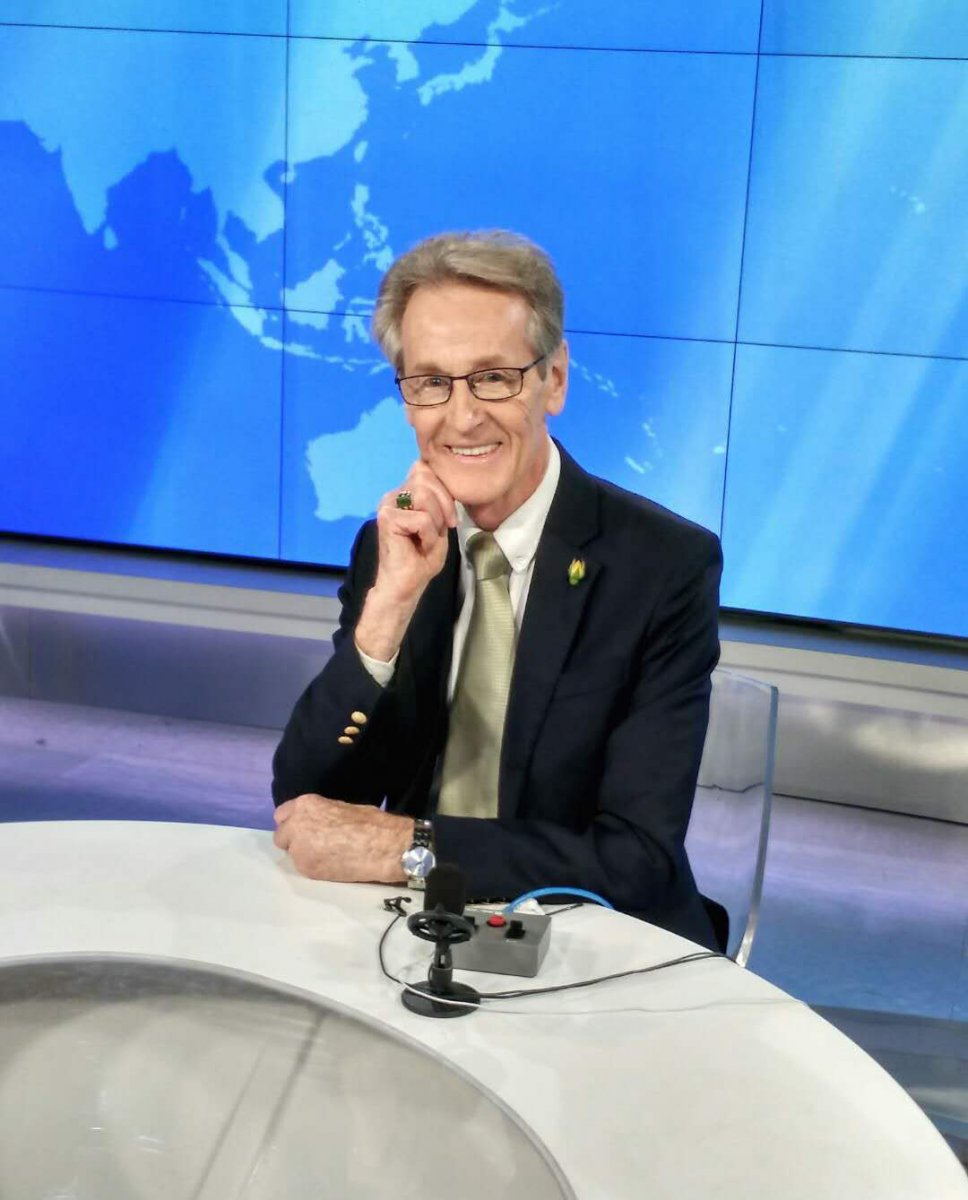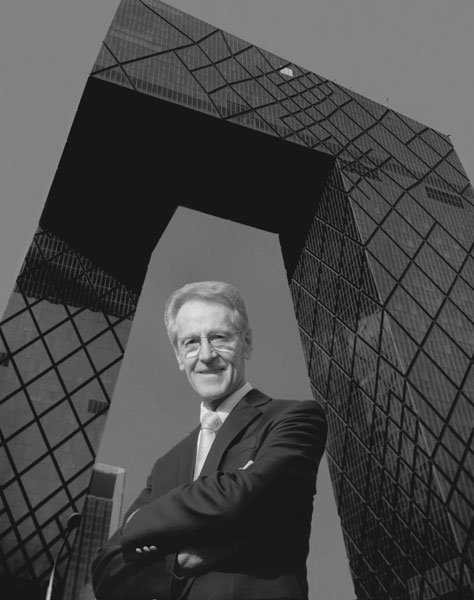Old China Hand: Former CCTV Anchor Edwin Maher On His Third Act in China's Capital
Even though Edwin Maher reported on many exhilarating stories during his 14-year stint as a news anchor at CCTV 9, one of his most gripping China experiences occurred away from the studio’s cameras.
When the New Zealand-born broadcaster was settling into Beijing in 2003 – one year before scoring the job that would beam him into millions of homes as one of China’s first foreign anchors – he went to a Carrefour supermarket and bought himself bicycle. “When I first got here it was still a city of bikes, and one the most memorable days was going on the road, joining the throng, and even talking to people riding beside me. It was so exciting!” says Maher.

It’s a treat to hear the firm and fatherly professionalism that Maher employed on the air for so many years slip away in conversation, as he lets a few casual “uhms” and “yeahs” slip in and his tone grows more enthusiastic. That being said, the former anchor’s famously golden voice, enunciation, and vocabulary remain as eloquent as you might expect throughout. While speaking about the white-knuckle nature of cycling in Beijing, for instance, he quips: “I was thinking the other day, ‘Why am I still biking in Beijing? I just nearly got killed!’ But negotiating all that wild traffic is good for the mind and reflexes at my age.”

Of his departure last year from the CCTV role that made him famous, Maher says the decision was mutual and that the station’s rebranding to CGTN created a bookend of sorts that made leaving just one of many changes at that newsroom.
Since then, Maher has continued to challenge himself in China, making time for speaking engagements about his background along with voice coaching seminars for Chinese professionals at various organizations, including staff at Xinhua state media’s new English television station and social media team. Maher states he thoroughly enjoys such educational work, and it has remained a constant in his fast-paced and ever-evolving China adventure ever since he first came here in a similar capacity for China Radio International (CRI) nearly 15 years ago.

That journey East came when after 20 years of working as an anchor and weatherman in Australia, he and his three children found themselves grief-stricken and adrift when his wife of 33 years, Robyn, suffered complications from a brain tumor and died in 2000. One day a few years later, Maher was idly thumbing the dial on his shortwave radio at home when he came across a presenter with an accent he didn’t recognize. His ears perked up all the more when he heard the announcer say “This is China Radio International.” A profile on Maher in China Daily last year says that that chance listening, along with his wife’s passing, “gave him the impetus to try pastures anew which is when he applied to CRI” despite already being well into his 60’s. After six months of coaching Chinese broadcasters so that their English was up to par for the airwaves, Maher was approached by CCTV to work as an anchor as the network began its push to reach a wider Western audience.

As time went by he found himself enthralled by the rapid changes China was undergoing, even though he hasn’t always kept up. Maher admits, for instance, that he stuck with his brick Motorola phone until 2015, after he grew weary of CCTV colleagues telling him: “Yeye (grandpa), you really need an upgrade.” Since then, he has enjoyed using WeChat pay and leaving his wallet at home. Maher also gets a kick out of shared bike apps and is pleased to see Beijing becoming a city of cyclists once again.
And yet Maher’s favorite trend of all is podcasts. He frequently downloads BBC and Australian ABC network news programming, and also looks to launch a podcast of his own soon, though he admits, “I need to do more homework to ensure I get it right.” Maher cites the chance to pursue such opportunities and the brisk pace of life as reasons why he has stayed in the capital for so long, as well as (perhaps most importantly of all) the low crime rate and overall safety of Beijing. That being said, Maher makes sure to head back to Melbourne for family visits at least once a year and relishes every moment, except for one night when he found himself unable to sleep. After tossing and turning, he recalls “realizing there was no background noise. I had to open a window, and upon hearing a dog barking in the distance, eventually, I got off to sleep.”
“It’s interesting how your mind and body adapts to a new environment,” Maher adds. “I’ve become very, very used to Beijing.”
More stories by this author here.
Email: kylemullin@truerun.com
Twitter: @MulKyle
Instagram: mullin.kyle
Photos: Uni You, courtesy of Edwin Maher, China Daily (via en.safea.gov.cn)




